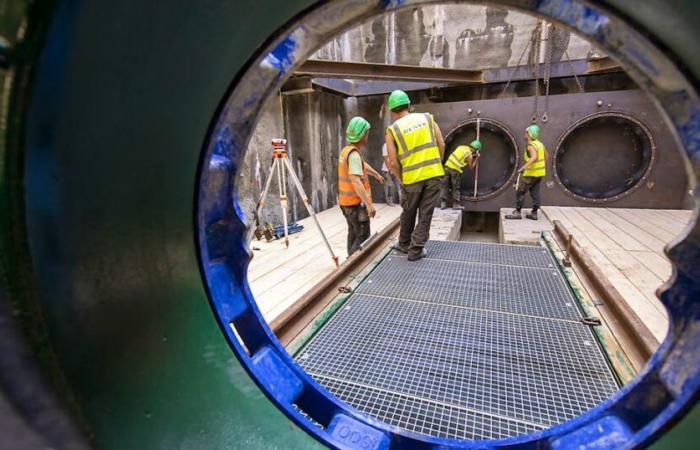The prices for the supply of heat and cooling via the structuring thermal networks of the Geneva Industrial Services (SIG) are now known. The average price will be between 18 and 22 cents per kilowatt hour (kWh), lower than for heat pumps.
ATS
The average price will be 18 cents/kWh for hot energy produced by GeniTerre and 22 cents/kWh for that, hot or cold, coming from GeniLac. The consumer can opt for 50%, 80% or 100% renewable. “These prices are within the Swiss average,” Céline Gauderlot, director of finance at SIG, told the media on Wednesday after their validation by the Council of State.
These prices are deliberately lower than those of heat pumps, the only possible alternative due to the ban on installing new oil or gas boilers in Geneva. “Owners will be forced to connect to these networks,” underlined SIG President Robert Cramer. Unless they have a more ecological solution.
In 2022, the Genevans agreed to give SIG a monopoly for the deployment and operation of structuring thermal networks, which provide entirely renewable and local energy. “This is the canton’s greatest potential to achieve its climate and energy independence objectives,” recalled State Councilor Antonio Hodgers, in charge of the Territorial Department.
“Implausible challenge”
By 2050, the structural thermal networks will power 6,800 buildings and cover more than half of the canton’s heat demand with entirely renewable energy. The SIG plans to have deployed 250 kilometers of network by the end of 2030, compared to 168 kilometers in 2023. For reasons of profitability, only the densest areas will be served.
Major projects will therefore open in urban areas. “They will be very visible. It will be an incredible challenge,” noted Mr. Cramer. A challenge in terms of coordination with the municipalities, who will take the opportunity to plant trees and install sound-absorbing coverings, but also in terms of information to the population. “We will have to be as efficient as possible and finish on time,” he insisted.






